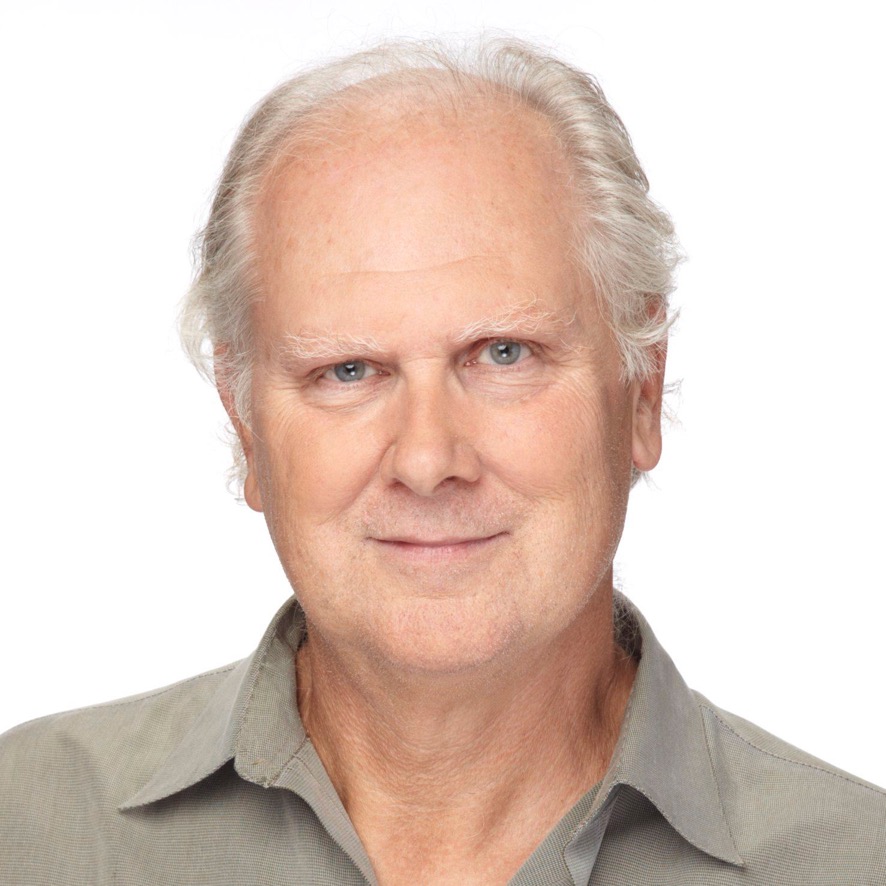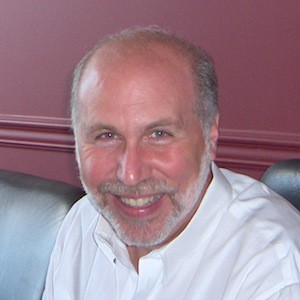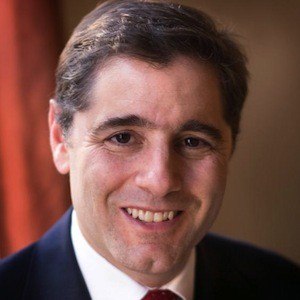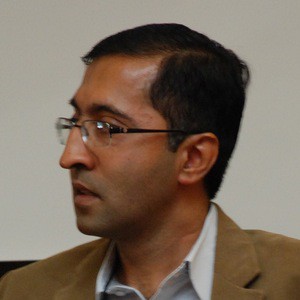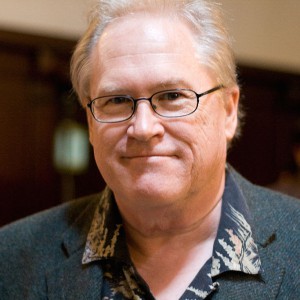John: Great. I’m talking today with Philip Elmer Dewitt, who is in
western Massachusetts and I am in Cambridge. Philip, why don’t you
tell me a little bit about your career path? How did you get where
you are? What’s your journalism career like? Tell me.
Philip: OK, well I was a Watergate baby, Woodward and Bernstein were
my heroes until I actually had to work with Carl Bernstein for a
year and was disillusioned.
Columbia Journalism School, a couple of graduate schools I
dropped out of. I knocked around in book publishing for many years,
was nearly broke when an Oberlin graduate friend of mine who was a
temporary secretary at Time was going on vacation and she needed a
fill-in. This was like 1979, I was broke and I worked as a
temporary secretary in the summertime, and this was a time when the
senior editors were a little uncomfortable having male secretaries.
It was a little easier for me to promote my way, I worked
there, did that for a while. Floating from section to section, got
a view of the magazine and then saw where I might fit in. I
couldn’t claim I was a writer, but there was this job, research
reporter, I thought I could probably pull it off. I did that for a
while, reporting. I reported a cover story on kids and
computers, based partly on my experience as I’ve been introduced to
computers the same way Bill Gates did, actually at the same time.
On a terminal, connected by modem to a PDP-10 minicomputer
in the early days of time-sharing. He was much smarter than I was
and did much more with it, but on the strength of my reporting,
which ended up being the lead of the cover story, they gave me what
they called a writer’s job at Time. The situation was…this was
1982. Time had all this computer advertising coming in, and no
editor to support it. They needed some computer stories to justify
this. There was sort of a bake-off between me, who actually had
worked with Bolt, Beranek and Newman as a little programmer back
when they were inventing the Internet.
I actually worked down the hall from a guy who had invented
how to separate someone’s name from their domain. He said “Oh, you
just use the @ key.” He’s just down the hall from me.
Anyway, the People writer also wanted this job and he knew how to
write at Time but he knew nothing about computer science. They
figured it would be easier to teach me how to write than to teach
him.
John: How to understand computers?
Philip: Yes. I got a writer’s trial. I’m a slow learner, and
everything I wrote for years was rewritten by senior editors. I
like the joke that a monkey would learn how to write a Time story…
…with the kind of instruction I’ve had. I did that. We’ll
get into this a little later, but the editor’s interest in
computers has waxed and waned. In 1982, they were very excited
about computers. They have a very smart West Coast correspondent
named Mike Moritz who had an inside track to Steve Jobs.
He was writing a book about Apple at the time when the
Macintosh was being developed. On the strength of Moritz
connections and his reporting and me taking a very senior writer by
the hand and taking him down to COMDEX and showing him this huge
economic explosion of computer companies and software companies.
They made the computers and machines of the year that year.
Moritz was great. He was very patient to put up with me
because he knew what was going on and I knew nothing. He took me by
the hand for a while. He ended up going to Silicon Valley and
becoming a venture capitalist. Among the companies he personally
backed were Google, Yahoo, PayPal.
He’s a multibillionaire now, a very, very smart guy. I wrote
computer stories for many years. A lot of them were computers and
banking. I found a pimp who was doing productivity studies on his
women and using the latest Apple II program, that kind of stuff.
One of the things that interested me, in your notes you asked about
eureka moments. One of the moments, it was a combination of things.
When I was working at Bolt, Beranek and Newman, we had teletypes
and I had this fantasy. It would be so great to have a teletype at
home. Then I could be connected but my dad would never let me
have another phone line. How was it going to work?
Then later, Moritz would tell me we’re watching computer
companies that even the PC market…you know, we won’t really know
what these things can do until they can all be stacked together.
I talked Time into letting me buy an Apple II and getting a
modem, and I was just really eager to get online and find out what
people were talking about.
That was my fantasy, that you could sit in a room and
connect with people around the world and just listen in and
participated. At the end it slowly came true. I was very excited to
report on what I found there, and the people who were there. I did
a bunch of stories, Network Nations, things like that. TIME, ran a
couple of them, thank you very much.
You’ve heard that story. What else do you got? That’s your
war stories about summer camp basically.
John: It’s all that stuff. It’s funny. You almost paint a picture
of your interest in technology, or you got the job in technology
almost opportunistically — by accident — with the woman at
TIME…being a second you took in the job with the receptionist. As
you said as well, your interest goes back well before that.
The interest in computers was there. The writing opportunity
bloomed late.
Philip: I’m the son of a World War II veteran that was a radio
engineer on the Italian front who met his wife in Algiers, but I
was a kid who always had a book in my hand. I was a reader, and
when I went to Oberlin after the experience with BBM, where I was
directly controlling computers.
Went to Oberlin and there was no computer for me at
Oberlin. I ended up becoming an English major and I went to
graduate school in English, and it was really only later when
journalism and computers became a thing I could make a living out of.
It felt right, it felt like this tapped into something that
I knew, and gave me the satisfaction that I always got from writing
for the newspaper. So, there were times there…I nearly got laid
off in 1992. I don’t know when it was, actually, 1990 in the first
wave of layoffs, which came periodically at Time until it shrank to what
it is today. Leon Jaroff, God bless him, the science editor argued
that Philip knew something about an important field here. It was
important at some other time to do something about this stuff.
Also the Gulf War broke out and I found another little
niche for myself writing about military technologies. They asked
that the computer section be broadened. First of all, they call it
high tech. I didn’t like that, I convinced them that that wasn’t
classy enough at the Times, call it technology. So, I ended up
becoming the technology editor after a while.
As I said, the interest in computers from a journalistic
point of view at Time would wane and wax. It waxed again when Walter
Isaacson became editor of the back of the book. He’d always been in
politics, but Walter went on to write
the Steve Jobs biography, which is what he’s famous for now. Then,
he was really one of the smartest and most ambitious people at
Time, and as back of the book editor, suddenly I found that I was
in demand again. He’s very interested in…”What is a Powerbook? I
want to know what a Powerbook was.” You know, the brand name of an
Apple computer. I hadn’t been able to write about that stuff for
quite a while, so I wrote about Powerbooks and then he had me write
about…he just fell in love with the word “cyberpunk.”
He wanted to put the word cyberpunk on the cover of the
magazine and I had to figure out what the hell. I mean, I knew
what it was, it was a term that a school of science fiction writers
called themselves. But to make it a Time cover story, I actually
went back and read the hippy cover story for Time and used that as
my model. I had this whole thing about the cyberpunk,
“We are all cyberpunks now” was my kicker. One of the other Time
writers wrote me and said he wanted to kill himself after he saw
that.
John: Isaacson was there and you had Paul Sagan doing it at the
same time. Time, Inc. was really off to a fast start in the early
90s.
Philip: Yeah, yeah, yeah. The other cover story I did at Time under Walter’s
supervision was the cover image was a bunch of TV sets going into
your eyes, and what did they call it? Oh, the “electronic
superhighway.” We were searching for the right metaphor, and both the
cyberpunk cover and the electronic highway cover, gave me a chance
to slip in a little of my agitprop, the way it felt to me. I didn’t
think the cable companies or that the phone companies
got it. I thought they saw the Internet as a bunch of tubes or
wires, and what interested me was what went on with the lights that
were inside the wires, the community that existed within the wires.
Which I mostly knew through the Whole Earth ‘Lectronic
Link, I don’t know if you heard of that before, but the WELL was
like a gathering spot of plugged-in journalists and writers and activists
and Grateful Dead fans. Anyway, it was an interesting bunch of
people, and I used them a lot for story ideas, and to bounce stuff off
of as a key part of this online community. I tried to use our
coverage in the sense that there was a life inside this thing they
called the Internet that was interesting. And Walter was receptive
to that in a way that previous editors had never been.
John: So, it was really the community aspect that you
think you spotted early and the hole in the view of the
telecommunications companies to a great degree .
Philip: Yes and the editors were blind too until Walter
came along. It was under Walter that
we cut a deal with AOL, this was before the horrible merger. Walter
wanted to use CompuServe but I persuaded him that AOL was quicker
and had a better interface.
It was going to take-off in a way that CompuServe wouldn’t
because it was really well
equipped for the middle of the road. At the time, magazines and
newspapers were panicking that they are going to miss out on the
boat unless they somehow got into this walled garden called AOL. So
we did a deal where we gave the readers early access to the content
of the magazine on Sunday night, before it hit the stands, with a
promise that we would open up chat rooms where they could talk with
the writers and the editors who did the story.
We were never able to deliver that many writers and
editors but it was enough that it felt like the real thing. And I
hired a guy from the WELL who was like their biggest rainmaker, who
was always at the center of the biggest discussions. Tom Mandel was
his name. He and I ran the bulletin board on AOL which was really
my first taste of how you can just get overwhelmed once you start
interacting. Our first experience was, the first trouble was with the gun
guys, the Second Amendment guys who hated Time ever since Time had
done a cover story that had a picture of everybody who had been killed by
a handgun that week.
Terrible reporting job, it’s horrible to put all that stuff
together. Time did it, great coup, and they just never forgive us
for it. Once they had a chance to yell at the editors, they really
did. That was an experience because first of all, guys who know the
Second Amendment, you don’t want to argue with them because A) they
know the Second Amendment in a way you never will and they have
all these stats at hand and B) they have guns!
You don’t want to piss them off too much.
I did that for a year and then Mandela got cancer and died.
Walter sold the whole thing to CompuServe for a million bucks or
something. The community that we built got shut down. They tried to
move it to CompuServe, it never caught on.
Meanwhile, we went off and started this thing called
Pathfinder. When you own the biggest brands in journalism or among
the biggest brands, Time and Fortune and Sports Illustrated and
People, why do you start something with a different name?
It’s bizarre. That didn’t work. Paul Sagan had a hand in
that I think. Walter, as soon as he got a chance, swooped back in
to become managing editor of Time and
left that horrible mess.
For me, I finally had learned enough. I was a good enough
Time writer to do cover stories. I did a whole bunch of cover
stories. A lot of them were sex in America, artificial
insemination, people getting fat, environment covers….
But I did a cover on Microsoft. It involved going to Seattle
and getting yelled at by Bill Gates. The next week I did a cover on
cyber porn that was the end of my career as an Internet journalist
at Time.
I had kind of worked this source, a student at Carnegie Mellon who
claimed to have exclusive access for what he described as what
people are really interested in sexually not what they say they’re
interested in.
He had it because he had access to which pictures were the
most popular on a pornographic bulletin board. He also had all
these stats one usenets, where porn was at that time.
He gave me an early shot, a few weeks early look at his thesis
which was being published under the supervision of a distinguished
internet professor at Carnegie Mellon. One of the big internet
universities.
Anyway, so I did this cover story that just blew up in my
face. The research, it turned out he was an undergraduate, the
research was a little bit shaky. I didn’t have the necessary
caveats in it.
I had ignored the advice of the Electronic Frontier
Foundation that told me not to touch this thing with a ten-foot
pole. When I did the story anyway I became persona non grata.
One of their lawyers decided he’d write a book about this story and
went after me, all guns blazing.
The guy who had written the study changed his name and
skipped town. We never heard from him again. I was left holding the
bag and I just got so much hate mail. I couldn’t write about the
Internet without getting crucified
…no matter what I did.
I became a science editor and spent 12 years editing
science. Walked away from sex and didn’t come back to it until my
friend Josh Quitt, who was editing a little magazine called
Business 2.0, also owned by Time Inc., invited me out to help him
try to save it.
This is the end of the story there, if you worked for
Business 2.0 you had to blog. Because I was flying back and forth
between Brooklyn and San Francisco to try to keep my marriage
working, I figured if I picked the right topic I could pay for all
my JetBlue flights.
I thought I’d either do…he was paying us 5 bucks per
thousand hits. There might be money made. I figured I’d write
either about sex or religion and I didn’t think my wife would like
if I wrote about sex so I decided to write about Apple.
It took off and it turned out when Business 2.0 died and
Fortune reeled me back, by then it was the biggest draw at
Fortune.com. I worked out a deal where I could take a retirement
package and just write my blog and I’ve been doing that for seven
years.
That’s where I am.
John: Excellent. You mentioned your primary eureka
moment was when it was pointed out that when these computers are
networked together, tied together, that will be when everything
goes up. Were there other eureka moments along the way or was that
really the primary (one)? Did it take a path that you expected?
Philip: Well, I wish I could say that I predicted that the Internet
would become what it was. I think I understood how the Internet
would intermediate and change a lot of things.
One of them would be that if everybody can make content, I
mean, anybody can be a writer, anybody can be a filmmaker, anybody
can make videos, anybody can be a journalist. What had been a one-
way street where journalists would decide what was news and shove
it down the pipe was going to change into something much more
democratic and free-for-all.
I didn’t anticipate that Craigslist would just cut the legs
off the business model of the newspapers. It basically killed
newspapers across the country. A lot of the stuff we saw early on.
I mean, back in the early 80s I was writing about online
banking and anticipating the friction-free electronic transactions.
I didn’t think it was going to take 30 years to get to Apple Pay.
You know?
I think a lot of what I knew, like a lot of us, I learned from watching Apple.
How important the user interface was in the early days. I remember
writing about the mouse early on and getting trashed by the Windows users.
“Why would you use a mouse it just slows you down?”
I wish I had saved all the things that people said. Now
because I write about Apple, Apple is just a fascinating case study
anyway. How Apple relates to Samsung, Microsoft, Google and…None
of this is a eureka moments but that’s what is exciting me.
John: OK. Now, tell me this, you had said when you first started
moderating on the AOL site when you guys put up a site on AOL how
that was the first time you were overwhelmed by an online response.
Chart out again what you saw when you came back to writing
the blog at Business 2.0. Did the users change? Did how you engage
change? What happened?
Philip: I remember AOL…this may be more personal than what you’re
asking for. I always felt that I had to be careful what I said. I
was a representative of Time Magazine which took itself very
seriously.
I remember if anybody complained about anything, eventually
it would get down to someone at the office saying, “Well fuck them,
this is Time Magazine.”
“We’re Time, you’re shit.” Good God. I don’t think I ever had
that, I have too much inferiority to feel that way. I did feel like
I had to be politics careful and I didn’t really engage fully. I’m
not sure I still do.
I’m conscious that I have a byline online, I’m
representing Fortune. My byline is my brand. Funny, when I started
at Business 2.0 working for Josh and Josh had just pissed off
Apple, terminally it turned out they were never going to advertise
with him again, because he’d run a picture on a cover of Business
2.0 of what he thought the iPhone was going to look like.
This is a year and a half before the actual iPhone came
out and it was a piece of shit. It looked terrible.
It was nothing that Jobs would ever approve and I think
Jobs had actually warned them off it. He said, “Don’t run that.”
They ran it anyway and Jobs just pulled the plug. He was never
going to deal with them again. He was very surprised when I told
him that I was going to go with them.
He said, “You are? Why would you do that?” Quittner, when I
said, “Maybe I should write about Apple,” he said “Oh yeah, great.
Apple 2.0: news from outside the reality distortion field.” That
was this old story that Jobs…that if we got too close, you’d
start to believe what he said.
If that’s your tagline you write a very different kind of
blog. I used to say at Time I didn’t want to write about any
technology if we couldn’t say something nasty about it. You always
had to have some distance from the subject or else you were just
sucking up to them and doing advertising.
When I first started to blog I wouldn’t write it unless I
had some way to twist the knife on Apple. There was always a
critical element to it. I did a lot of stories I probably wouldn’t
have bothered with now because I just looked for the juicy part
of…I could see how to twist the knife.
Later, I think with…and again, this may not be relevant
to you but over the course of seven years my attitude towards Apple
as a story has been shaped as much by what the other people were
writing. If you follow because I’m writing for the Fortune audience
I’m following the business of Apple a lot.
People get that story so wrong. A lot of what I’m doing
turns out to be press criticism. There’s just such bad journalism
going on. A lot of it in places like The Street where Jim
Cramer’s property..
…that’s such a den of snakes. There’s so many people with
shorts (positions). Guys who were trying to manipulate the market and the
revenue. FUD it’s called, the old IBM term, fear, uncertainty and doubt.
You’ve got trolls, who are just out there trying to
generate nasty comments. You get actual sock puppets they call
them, guys who are actually are working for Samsung and pretending
that they’re regular readers and they’re out there stirring things
up.
Anyways, I fi”nd myself doing a lot of questions, what
you’re reading about Apple is wrong.” I’m now accused of being a
fanboy by some, and maybe I am. Maybe I’ve gone native, is what they
used to say. You spend too much time in South Africa covering
politics.
John: There’s another parallel that during your career, you’ve
gone from there being a handful of people covering tech in the
early 90s…..
Philip: We would do lunch together, every week. Once a month, the
tech journalists would have lunch. Steve Levy, I think you talked
to him, was one of eight or 10 people. That was the entire New York
tech crowd. Now, I swear there are 100 people writing just about
Apple.
John: Like most celebrity coverage… has covering Apple,
where the people you’ve talked to regularly, 20 years ago, have become
fabulously wealthy. Has jealousy fueled any of this? How do you
play with that as a journalist?
Philip: I don’t see that many, the fact that some of them are
fabulously wealthy… the journalists aren’t
fabulously wealthy, there are very few. Moritz was really the exception.
The number of journalists
who are smart enough to go become venture capitalists… the Venn
diagram. It is much noisier thing these days and a lot of the
action has moved, certainly moved to the newspapers. If there’s a
story in the New York Times, it’s usually a couple days late. I’m
on Twitter.
to keep track of the eight or 10 people who have their
antenna out for Apple news, and have an attitude about it. Those
are incredibly useful people. I’m also plugged into the investor
boards, guys who bought Apple at $9 a share and are now
mostly millionaires and are very attuned to anything that might
change the value of their holdings. They also have their antenna
out, they’re great sources of…even if you have to filter it
because all they want is for the stock to go up.
So that’s sort of parochial because it’s just Apple stuff,
but you know what? It’s funny, because I haven’t found a beat
that’s quite like that. Fortune.com for a while hired a guy for a year
to write about Google. Google might do that, as well. He did a good
job, he’s done all the stories. It didn’t quite take off the same
way, there wasn’t the same passion. Part of that was because, if you
stuck with Apple through the lean years, when Jobs left and when he
came back, you took a lot of shit. There’s a fierce, there’s
probably some religious parallel of persecuted minorities that get
to come back….
John: It’s the bounce back effect. He’s alive, he did it.
Philip: I met the followers who made it through, were in the desert
with him. Now he’s back and so they just have a passion for this
company that’s a little irrational. One of the things that makes it
a very exciting beat, because there is also on the other side the
people who hate Apple irrationally. That’s been a moving target
it was first the IBMguys, the Microsoft people, the Windows people and now
it’s the Android side. For a blogger, whenever you’ve got two
groups that hate each other, that just clicks.
You get this effect where if you write something, if you
participated in a discussion, you have a vested interest in that
discussion and you are going to come back every hour to see how
people have responded. You also have that going on on the
investor front, because you’ve got the bulls and the bears, the
people who are trying to talk it up or trying to talk it down.
The comment stream on my blog after the spinoff, after Time
Warner spun off Time Inc., was pretty much ruined and we’re
trying to build it back up again with stock prices and everything, but
I’ve always cared almost as much about that common stream as I have
about what I was writing. I’ve always cherished that relationship
with the readers and done everything I could to make it a
hospitable place. That’s the people, the bandwidth hogs we used to
call them, and we encourage the people who are saying smart
things. It’s funny because whoever redesigned the Fortune
site didn’t care at all about that.
John: It’s interesting, you used to word…someone commented to me
in one of the discussions we had….how journalism always had stars.
Now the stars are brands and what was once a following has now
become an audience. Is that just the way you want to nurture your
comments, you used the word brand. Do you view your byline now as a
brand and is it different than it was 10 years ago, 15 years ago?
Philip: When I was writing for Time magazine if people liked a
thing, that’s great. There, you had no contact with your readers
except for an occasional letter to the editor, and they don’t have
any feeling they can talk to you. Within the building, you’re
basically anonymous. People don’t look at bylines in editing. They
probably don’t on the web, either, but there are ways that they’re
starting to. I’m not sure I’m so much of a brand, but take someone
like John Gruber. Have you ever heard of him?
He writes a blog called Daring Fireball, he probably makes
as much money selling T-shirts as he does from the blog, but he
also has a podcast and the podcast turned out to be enormous. They
make a lot of money, they make a lot more money from the podcast
than from the advertising or the blogs or the T-shirt sales. He is
a real brand and I aspire to be as much of a brand as John Gruber
is. There’s a bunch of young guys coming up, Ben Thompson has got a
blog called Stratechery.
There’s a whole crop of guys in their 30s who are doing
this, really smart. Some of them were developers, some of them worked for Apple for a
while or Microsoft, and they now are working for venture
capitalists. They’ve been gathered up by the venture capitalists
from their reporting and their blogging and the writing. Those
guys, it’s not quite journalism, but in some ways it’s better than
journalism, you know? It’s more timely, it’s smarter than your
average heavily-edited written spot, written from files and
correspondents or pieced together from three quotes from analysts.
These are guys who really know their stuff and are calling
it like they see it and it’s just good. It’s good reporting, it’s
great analysis, it’s immediate and they’ve got a relationship with
their audience. It’s great stuff, it’s as good journalism as I’ve
seen done in 30 years.
John: How do you think journalists have done
covering this era? How is journalism done covering the last, let’s
say 20, 25 years?
Philip: I’d give them a “C”.
They’ve missed huge things and people who believed what
they are writing made huge mistakes. Probably still the biggest,
the worst merger in the history of capitalism is still Time Warner
with AOL. As a journalist, believe me, that was all bullshit.
Certainly, believe me, this case was bullshit. Talk about buying
high and selling low. I think the Apple story has been done wrong
by most outlets. The New York Times they won a Pulitzer Prize for
that.
John: The factory?
Philip: On Apple. I don’t know, when we were worried about science
and the environment, we would talk about conspicuous mega fauna.
The big animal that when it died we know that there’s something
bad with the environment. So, for that animal to die, hundreds of
smaller species already died. I don’t know, picking on Apple
because it tried to minimize it’s taxes or because it’s using low
cost workers in China, that’s just a basic misunderstanding of how
the tax code works and how and where the subcontractor ecosystem
is these days. You can’t get work done.
It’s worrying that Apple is under so much pressure to bring
those jobs back to the US, hire goes to a New Hampshire phone to
make Sapphire for them, and those guys just so badly botched the
job that just when Apple needs the Sapphire, they declare
bankruptcy. So Apple has to pay pennies on the dollar and deal with
these thieves in Manchester, New Hampshire who sold their stock
just before this whole thing blew up. That doesn’t happen in
Taiwan or not so frequently that you can’t actually do business
with them.
John: Now you said, that was interesting. Journalism gives us,
you give it a “C” for covering tech. Do you think that, are you
optimistic about journalism? Because the guys you mentioned in
their 30s, “it’s not quite journalism, but it’s good. It does X, Y,
Z, answers the questions.” How about the part of the craft you grew
up with — journalism? Are you optimistic about it in the future? Are
you pessimistic? Where do you stand?
Philip: No, I think there is a world of hurt yet ahead.
John: In terms of the business model, or…?
Philip: The business model, yes. I mean, the newspapers have lost
their monopolies. It’s nice to be a monopoly it helps to pay for
bureaus in Bangkok. If you can’t do that, if you can’t afford it,
then you can’t cover the news like you used to. I met someone this
summer who, they ran operations out of Paris where they sent
videographers into war zones, because they were too dangerous that
none of the networks would send anybody in there. So they pick guys
with a death wish and send them in and they get captured and they
get their heads cut off.
That’s a tough business and it’s just terrible. That’s
probably not a great example, interesting. My heart is broken by
what’s happened to Time magazine. We used to be able to…when we
wanted to do a story, you could query bureaus all over the world.
You have a researcher working for you, the thing’d get edited three times.
If you’re looking for a great quote, you’d have five to choose from
because you’ve got so much good reporting. You could write a
densely-packed, well-informed piece on deadline, and what did they
have instead?
That was so expensive, it was the most expensive magazine
in the world to produce and instead they could hire a columnist
who could write it from clips. That’s back to the original model
at Time magazine which was a cut-and-paste job done by a couple of
Yale guys. So where is good journalism being done these days? The
New York Times is still doing it, run by a family and something
like a monopoly in the media center of the world. The Washington
Post is not so great anymore, the LA Times..
And the number of small towns…I’m now in a small town in
western Massachusetts,Greenfield. They have a
little paper called the Recorder, it’s a county seat, 17,000
people…the front page picture for the last three days has been
fall foliage and it takes up most of the front page. And the picture
yesterday, the top left and bottom right corners were the guy’s
thumbs.
John: Well, here’s a question. Some people
differentiate journalism with a big “J” and journalism with a
little “j”. The future for the big “J”, because the news
business sucks, is bad. But the little “j”, they say there’s so
many more ways to publish them.
Philip: It’s true. A thousand flowers, a million flowers are blooming.
The problem is changing, the problem is, how do you
filter, how do you find the good stuff? There is still a role for
journalists, pointing to people who do the good stuff but that may
not necessarily be in the form of something that gets printed in a
paper.
John: Somebody said to me, the problem now is the readers
have to get smarter about what to trust, how to evaluate, the way
to do it. Do you see that happening? Because once a while ago,
there was a halo effect from a brand, you lived within an institution
and the institutional
standards were taken as ruling your life. Now, people trust their
friends and their peers more than they trust (institutional) brands.
Philip: I think we’re in a transition, certain brands still carry a
lot of weight. The three networks news broadcasts haven’t gone
away but their audience is a fraction of what it was, and a whole generation
now gets that kind of news from Jon Stewart. It’s funny, delivered
with attitude, but it’s serious enough to feel like you’ve learned
something. My daughters read the Huffington Post headlines that’s
how they get their news. I think the readers are always smart,
they’re always smarter than the journalists give them credit for.
You find out when they write the letters to the editor.
The old adage that whenever someone reads a news story
about something that you know something about, there are errors in
it. That’s always been true. So, they are different approaches
being taken to how to solve the filtering problem. Google’s approach will
always be machine learning. Same with Facebook. In fact, there’s a
couple of great pieces today in the New York Times, what’s his
name, Carr?
John: David Carr, about the newsfeed on Facebook and the
designers.
Philip: It made me go back and take a closer look at what they’ve
done with the newsfeed, because it really is very different from
what it was. It used to be just the guys I was friends with, and
now I have no idea where that stuff is coming from. I would love to
get control of it and I’m feeling like, if I wanted to
interact with my readers, I have to go to where they are, to where
they want to talk. Some of them are coming to the blog, way fewer
than they used to be. I’m working on Twitter. I post all my stuff on Twitter,
Facebook and LinkedIn, but I have to do the next step, which is to
follow up and go see what people are saying and get in the
conversation with them. I think that’s part of the job.
That’s what comes with being the kind of journalist I am,
which is a hybrid of the old and the new, because I’m writing with
the support of Fortune. Thank God, because I don’t want to go out
and sell ads and homemade T-shirts and do podcasts. That’s a job
where I can just report and write, that’s what I want and I want to
keep it that way. I hope I don’t
have to get to the point where I have to start my own blog because
it’s a different business.
John: Absolutely different thing. Excellent. Well, I want to
thank you. It’s been great. It’s been a great chat, informative,
because I think what’s been wonderful is, you’ve straddled. You’ve
straddled. That’s fascinating, that’s fascinating.
Philip: Yeah, I’m still straddled, I think. The end of a
generation of journalists. The guys who grow up now, they’re not
going to… You
know what’s funny? It may be that what they aspire to when they
start their blogs is “I hope I get hired by Fortune magazine and
they put me on a medical plan.”
John: Just like some people we know. All right, thank
you very much, Philip.
